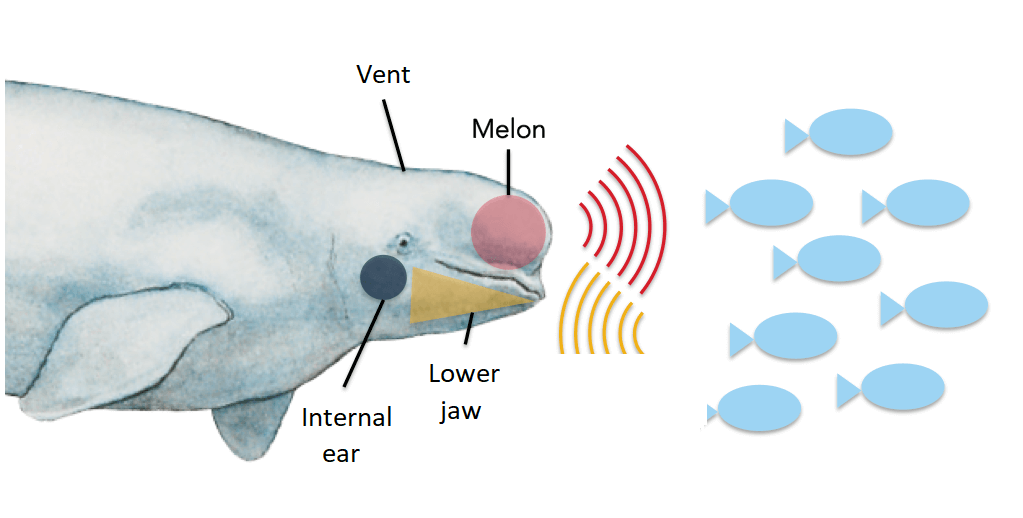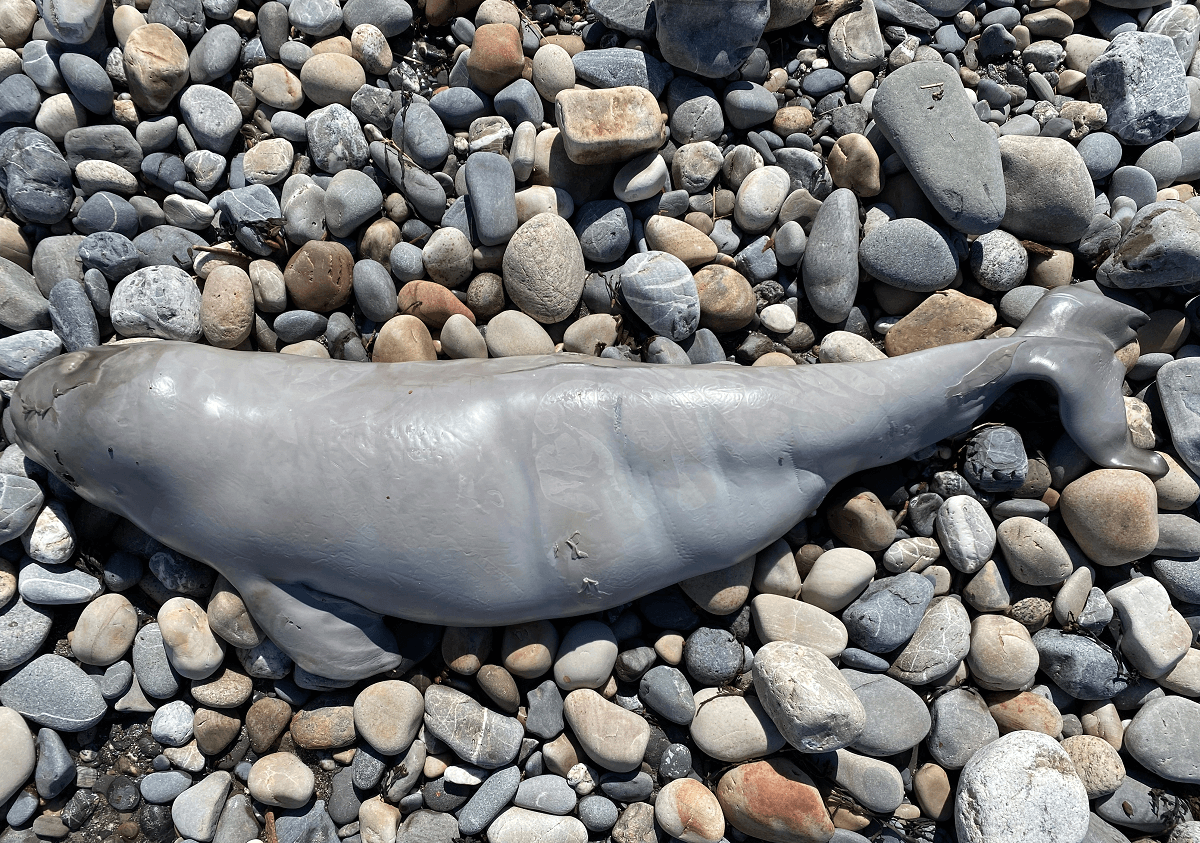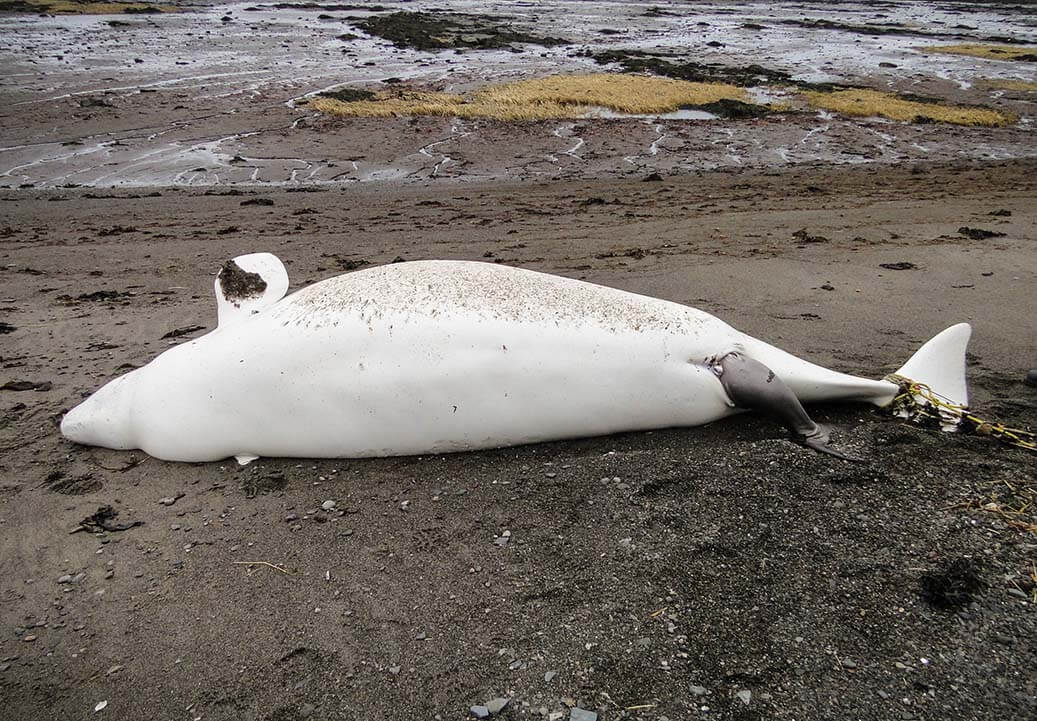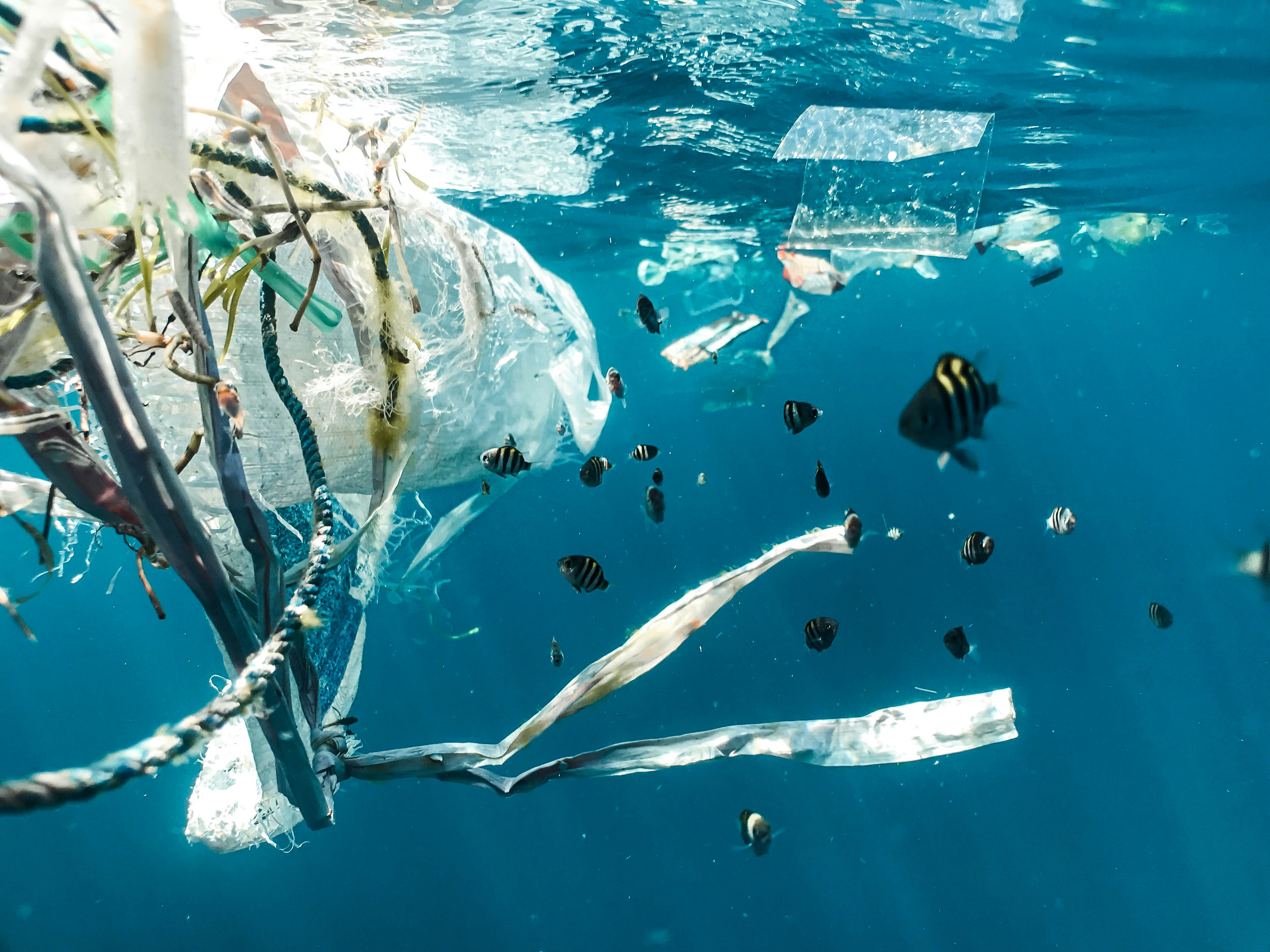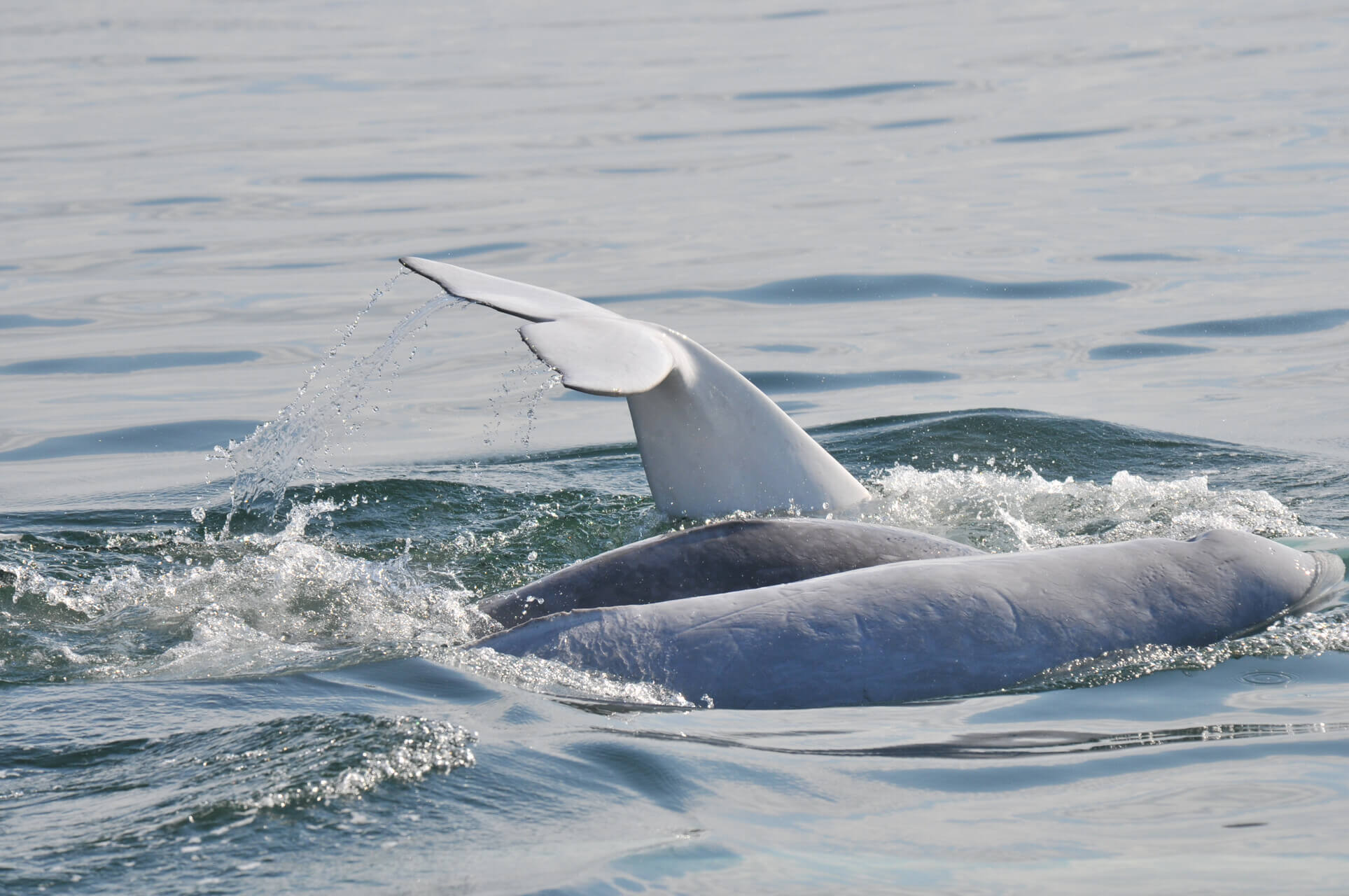Once again this summer, Baie Sainte-Marguerite will be closed to navigation from June 21 to September 21.
Since 2018, navigation has been completely prohibited in Baie Sainte-Marguerite during the summer months for all watercraft, with the exception of kayaks, canoes and recreational fishing boats under certain conditions. In the waters of the Saguenay adjacent to this bay, speeds of between five and ten knots must be maintained and stopping is prohibited.
This measure is intended to reduce noise, disturbance and the risk of collisions for the belugas that frequent the area at this time of year to feed, socialize and rest. Females also care for their calves here.
Females and calves have been over-represented in mortality statistics since the early 2000s. Noise pollution generated by boats and the disturbance linked to the presence of watercraft is believed to be partly responsible for this trend.
Indeed, generally speaking, the sense of hearing is of critical importance in the life of belugas and odontocetes(toothed whales). The sounds they emit, receive and interpret are essential, whether for hunting, orientation, or communicating with members of their own species.
Ships interfere with each of these activities due to the noise they generate. According to a number of experts, this interference causes stress that, over the long term, likely results in a deterioration of the animals’ general health. The presence of watercraft, even those that are relatively quiet, can also distract belugas from their core activities.
However, this interference is believed to be particularly dangerous for young calves.
Increased danger for calves?
In an environment like the Saguenay or the St. Lawrence where visibility is very limited, the bond between a mother and her calf is maintained mainly through the sounds each of them produces and hears. A mother beluga must either rely on her calf’s weak babbling to locate it or must maintain physical contact.
However, a passing ship masks the faint sounds produced by newborns and can therefore interrupt communication between them and their mothers. In some cases, the duration of the interruption caused by a loud vessel could be sufficient for a mother to lose track of her young, sometimes permanently.
According to a report published in 2017 by Parks Canada, more than 90% of the herds swimming in Baie Sainte-Marguerite were made up of adults and juveniles, and nearly half were composed of adults, juveniles and calves, hence the rationale for protecting this area.
Stress triggered by noise pollution may be partly responsible for increased complications during calving in belugas. Every effort to reduce disturbance to this species can therefore help.



